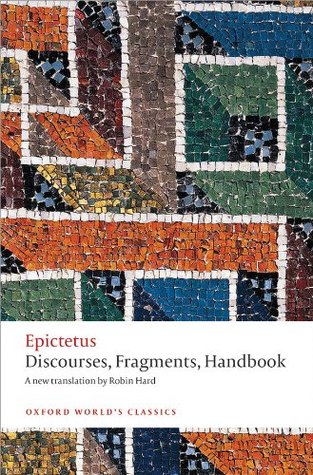More on this book
Community
Kindle Notes & Highlights
What are we to do, then? To make the best of what lies within our power, and deal with everything else as it comes. ‘How does it come, then?’ As God wills.
For as soon as anyone begins to consider such questions, assessing and comparing the values of external things, he comes near to being one of those people who have lost all sense of their proper character.
And yet a bull doesn’t become a bull all at once, any more than a man acquires nobility of mind all at once; no, he must undergo hard winter training, and so make himself ready, rather than hurl himself without proper thought into what is inappropriate for him.
nor in general do I cease to make any effort in any regard whatever merely because I despair of achieving perfection.
If only one could be properly convinced of this truth, that we’re all first and foremost children of God,* and that God is the father of both human beings and gods, I think one would never harbour any mean or ignoble thought about oneself.
For what else is tragedy than the portrayal in tragic verse of the sufferings of men who have attached high value to external things?
What sort of prison? That in which he already finds himself. For he is there against his will, and whenever someone is in any place against his will, that is a prison for him. Just as Socrates* for his part was not in prison because he was there willingly.
Who, then, is the invincible human being? One who can be disconcerted by nothing that lies outside the sphere of choice.
It is difficulties that reveal what men amount to; and so, whenever you’re struck by a difficulty, remember that God, like a trainer in the gymnasium, has matched you against a tough young opponent.
Whenever you devote your attention to what is not your own, you lose what is truly your own.
God brings benefit; but the good also brings benefit. It would seem, therefore, that where the true nature of God is to be found, there too will be that of the good.
So also in our case, we picture the work of the philosopher as being something like this, that he should adapt his own will to what comes about so that nothing happens against our will, and so that nothing fails to happen when we want it to happen. [8] It follows that those who have engaged properly in this task will never be disappointed in their desires, or fall into what they want to avoid, but will live a life free from pain, fear, and distress, and will maintain, furthermore, in their social dealings, both their natural and their required relationships, as son, father, brother, citizen,
...more
What, has God given you nothing to help you in this predicament? [14] Hasn’t he given you endurance? Hasn’t he given you greatness of soul? Hasn’t he given you courage? And yet, being equipped with the hands that you have, do you still look for someone else to wipe your nose? [15] But we devote no effort to any of this, we pay no attention to it.
Great is the struggle, and divine the enterprise, to win a kingdom, to win freedom, to win happiness, to win peace of mind.
Practise, then, from the very beginning to say to every disagreeable impression, ‘You’re an impression and not at all what you appear to be.’
Don’t seek that all that comes about should come about as you wish, but wish that everything that comes about should come about just as it does, and then you’ll have a calm and happy life.
The condition and character of a philosopher is this: that he expects all benefit and harm to come to him from himself.


